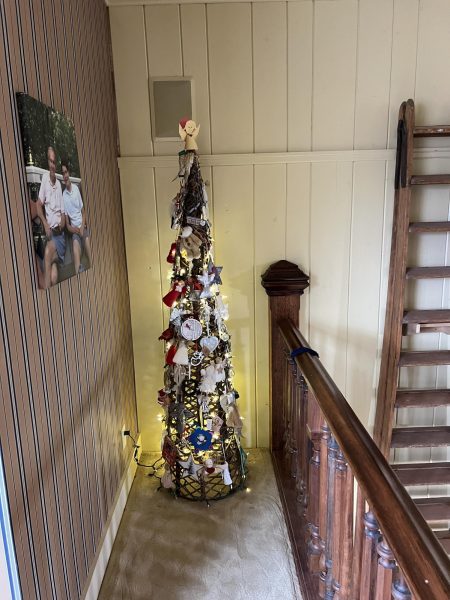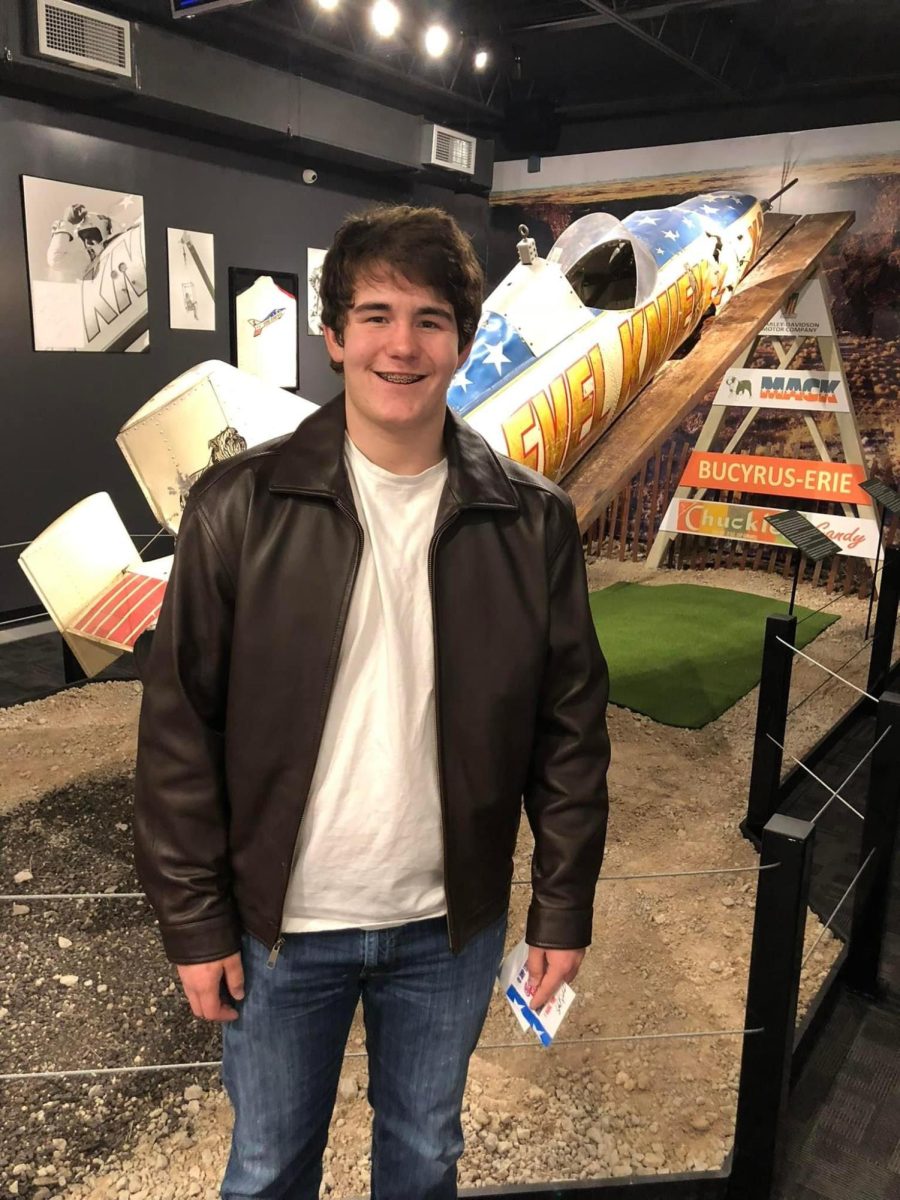Content Warning: The following article contains mentions of suicide.
Wrapped in a green cord of white Christmas lights stands a wooden, cone-shaped tree filled from head to toe with unique ornaments in the home of Susan Owen, founder of the HAMO Foundation.
The significance of the tree in Owen’s home was not the time of year or the character it added to the room, but it was to show how kindness from strangers around the world can make an impact on someone’s life.
When Owen’s son, Henry Alan Munson Owen, died by suicide in 2020, people from all over the world anonymously sent ornaments to her home for the holidays as symbols of love and support. These ornaments now fill the wooden tree as a reminder that even when an action may seem small, all it takes is an act of kindness to change a person’s life.
Acts of kindness, like the ornaments on the wooden tree, are exactly what inspired the creation of the HAMO Foundation, a movement aimed at removing the stigma around speaking about mental health.

On paper, the solution to Henry’s struggle seemed simple. He was receiving help through therapy and other resources for the struggles he felt with the loss of his grandmother, and by societal standards, the help he was receiving should have been enough. However, this was not the case, and Owen said she could not see that the support was not enough until it was too late.
Henry’s silent struggle brought to Owen’s attention that in society, there was a communication barrier between adults and kids.
“When Henry died, we opened our home, because kids were over here constantly,” Owen said. “I wasn’t going to let kids silently struggle the way Henry struggled over the loss of my mom.”
Opening her home for kids to come and express their emotions and thoughts led to the creation of the Here to Hear You Program, designed to bring people together and foster relationships between those who may need help and those who are willing to listen.
“We’ve found that even well-meaning adults are sometimes too quick to put a Band-Aid on an issue,” Owen said. “It’s like they don’t convey a sense of sincerity, so there’s no trust.”
The urgency and quickness to resolve issues that adults can feel is exactly why Owen wanted to create a space where anyone could connect and have genuine conversations, no matter their age. The program was not designed to replace mental health contacts, but instead, it was designed to assist in building connections within the community.
“We decided our approach was going to be a movement of kindness with no structure whatsoever because I think it needs to be spontaneous and genuine,” Owen said.
In addition to the Here to Hear You Program, the HAMO Foundation also fosters the Henry’s Helpers initiative, where storytimes are held in the Ames community and across the country to encourage learning through one of Henry’s favorite hobbies: reading.
“Every Saturday we do readings in Ames, and that now has satellites in New York, California and Florida, and the message has been spread all through grassroots,” Owen said.
Other organizations on Iowa State’s campus like Pi Kappa Alpha (PIKE) are also helping to support the initiative through fundraising events and the spreading of mental health awareness on campus.
“Having a local initiative like the HAMO Foundation helps you feel more of a connection, it’s not just some big company helping out people, it’s right here in Ames where they’re helping people and they’re growing and helping across the world,” Jason Steigerwald, philanthropy chair for PIKE at Iowa State, said.
Not only is PIKE supporting the HAMO Foundation, but as an organization, members also feel a connection to the message.
“The HAMO Foundation spreads the message of suicide prevention, and I know that some of the guys in our fraternity have suffered from depression, so I would definitely say there is a relation between us and the initiative, which makes it special,” Steigerwald said.
The foundation also touches the Ames community through former classmates of Henry, who now attend Iowa State and try to spread awareness of Henry’s story.
“The HAMO Foundation has been a way for the people who went to high school with Henry to still have a connection with him,” Rachel Rydl, a former high school classmate of Henry’s, said. “As long as I am here, I never want to forget him, and this foundation has kept me connected with Susan and the people who loved him most.”
The foundation, Rydl said, also connected her with her peers through games and events that encouraged healthy conversations about mental health.
“We did a bags tournament that brought a variety of people from different ages together, and Susan rented out a bowling alley where people could mingle and see friendly faces to show that people are there for each other and care,” Rydl said.
To learn more about the HAMO Foundation or to get involved with the organization and its events, visit the HAMO Foundation website to learn more.
If you or someone you know is struggling with mental health, you can utilize the mental health resources page on the HAMO Foundation website or visit the Iowa State Student Wellness website for further support.








